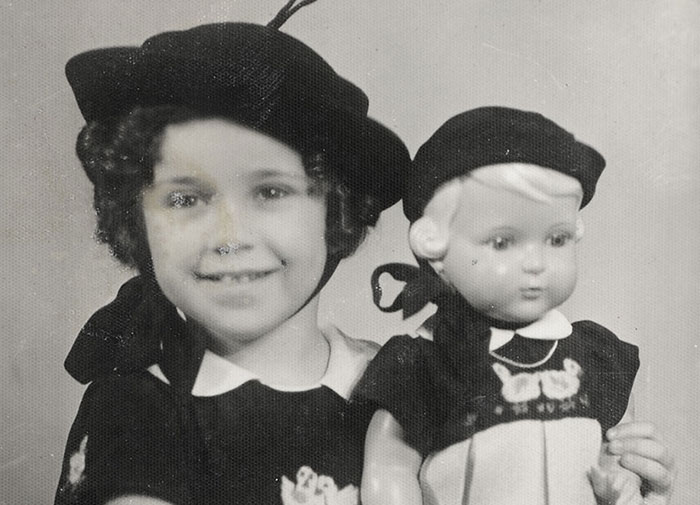Lydia Suzana Hӧnig | Lydia Brenners
Lydia Suzana-Zsuzsa Hӧnig was born in 1932 in Novi Sad, Yugoslavia (today Serbia) to a Jewish, educated and well-off family. Her Budapest-born father, Sigmund-Zelig, was a pharmacist with a chemical and cosmetics factory, and her mother, Olga née Vajda was born in Novi Sad and worked in the family factory. Sigmund and Olga's first-born daughter, Vera, was born in 1925. Lydia and her sister went to the Jewish school in the city, which was close to the synagogue. Lydia also went to ballet classes, and was a talented dancer who performed in public.
In 1941, Novi Sad was annexed to Hungary. In January 1942, a curfew was imposed on the city's residents, and Hungarian policemen and soldiers went on the rampage, murdering 1300 citizens, 800 of whom were Jewish, and throwing their bodies into the Danube. In the course of this raid, Lydia's father was taken from the collection point at the Sports Center to prison, together with other men. Lydia, her mother and sister were taken in trucks to the baths on the edge of the Danube, and heard shots. After the shooting subsided, the three of them were taken with others to the Sports Center and then allowed to go home. Lydia's father was also released later and returned home. That same night, the family decided to flee Novi Sad to seek refuge with Sigmund's relatives in Budapest.
Upon arrival in Budapest, Lydia was sent to a Jewish boarding school. An employee at the factory in Novi Sad managed to send the Hӧnigs some money and a few of their belongings. Sigmund acquired false papers for the family, and they rented an apartment in town. In the summer of 1942, at the end of the school year, Lydia left the boarding school and was reunited with her parents and sister. The family moved apartments several times, and Lydia worked first as a seamstress and later as a nanny in a Christian home.
Following the German occupation of Hungary, the Hӧnigs moved to the basement of a building where they lived until the war's end. Throughout this time, they remained in contact with family members living in the ghetto in Budapest.
After liberation, Sigmund, Olga and their daughters Vera and Lydia returned to Novi Sad, and in 1948 they immigrated to Israel.

